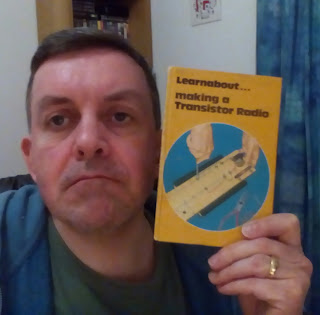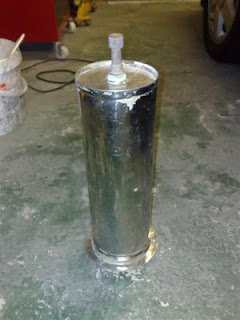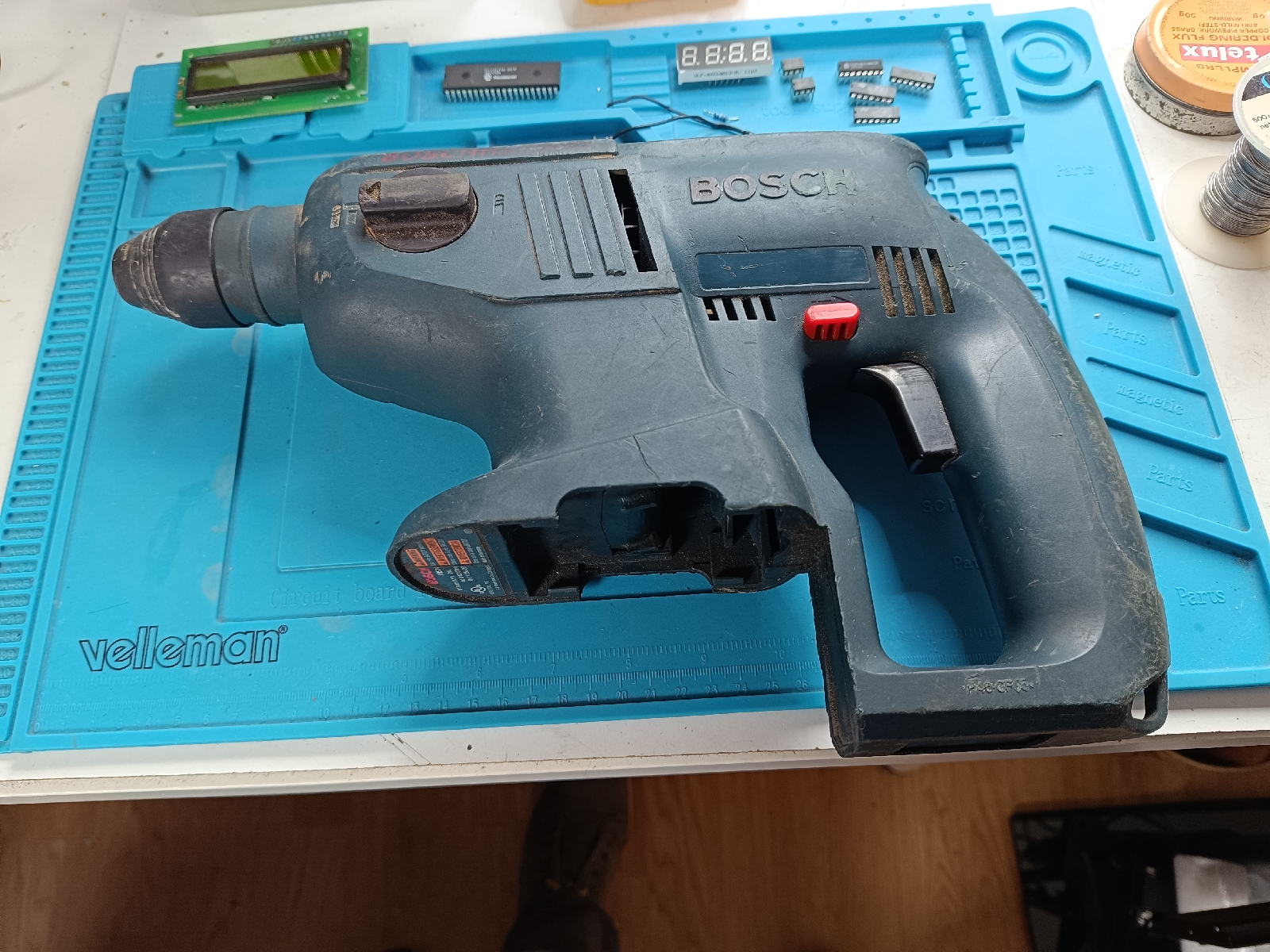In the beginning there was the Word...
In a fit of nostalgia I ordered up 'Making A Transistor Radio' from a second-hand book seller on eBay a couple of weeks ago. This wasn't entirely necessary as the book has been scanned, PDF'd and uploaded several times over the last few years, but I wanted, no, I needed a copy.
Why? Because this is where it all began, my obsession with technology and anything that needs electricity to run.
As some of you are aware my grandfather Bertie Walsh was one of the first radio amateurs in Ireland and had his original licence under Marconi's patents. His callsign was GI4RY and if you Google that you can still find a couple of references and I think a scan of one of his QSL cards. He made his fortune as a cinema magnate in the 1930s and was fascinated by the technology of the time. So I grew up with this wonder for anything connected to radio or television and my earliest memory (aged 3) was the adults (mainly drunk) going mental in July 1969 when a certain man stepped out on a certain moon and said the second most important words of all time (only Sagan's 'Pale Blue Dot' is more important).
Why? Because this is where it all began, my obsession with technology and anything that needs electricity to run.
As some of you are aware my grandfather Bertie Walsh was one of the first radio amateurs in Ireland and had his original licence under Marconi's patents. His callsign was GI4RY and if you Google that you can still find a couple of references and I think a scan of one of his QSL cards. He made his fortune as a cinema magnate in the 1930s and was fascinated by the technology of the time. So I grew up with this wonder for anything connected to radio or television and my earliest memory (aged 3) was the adults (mainly drunk) going mental in July 1969 when a certain man stepped out on a certain moon and said the second most important words of all time (only Sagan's 'Pale Blue Dot' is more important).
So aged 14 borrowed a Ladybird Book called 'Simple Circuits' from the Carnegie Library in Bangor (County Down, Ireland), but then my father bought me 'Making A Transistor Radio' and helped me to do just that. This was no easy process in Northern Ireland in the late 1970s. Belfast was a relatively dangerous place and there was only one electronics store so we ordered parts from a guy called Dennis Brown in Bangor who ran a radio repair shop. It usually took about a month to get the parts and a lot of these were substitutes, but in the end I got there, in part by cannibalising broken radios my dad got from the council dump now that he had taken on the job of stores clerk at the works department after a spell of unemployment (this was the 1970s remember and they were crap).
We got loads of these multiband radios in the early 1980s from the dump. They were actually not bad, but they were in a cardboard case with a dodgy mains input which wouldn't pass any health and safety certification these days. I kept one for a few years that was similar to the one in the photograph because it covered most of the useful VHF frequencies and in those days air traffic, police and fire service transmissions were analogue and plain language which was useful in an urban combat situation. The police callsign in Bangor was 'Golf Bravo.'
The book used a really clever system to construct the circuits using softwood, woodscrews and screw cups to make a sort of early breadboard and it worked really well. So well in fact that I've used the same technique over the years for testing 240-volt circuits so that I can be assured the dangerous voltages are under control.
So that's where it all started and within a year I had borrowed a ZX80, bought a second-hand ZX81 and then went on to the ZX Spectrum, Kempston interface, CB radio ('10-4'), built my own Z80-based micro-box, PC's (286, 386 and so on), PIC microcontrollers, C++. HTML, Java, JavaScript, PHP, CSS, SQL, AJAX, Arduino, Raspberry Pi, Android AppInventor and now I am about to push through into another parallel universe and prove that Dolly really did wear braces in Moonraker. Somewhere.
And I still love cannibalising old radios.






Comments
Post a Comment